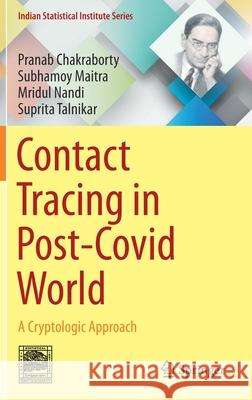Contact Tracing in Post-Covid World: A Cryptologic Approach » książka
topmenu
Contact Tracing in Post-Covid World: A Cryptologic Approach
ISBN-13: 9789811597268 / Angielski / Twarda / 2020 / 135 str.
Contact Tracing in Post-Covid World: A Cryptologic Approach
ISBN-13: 9789811597268 / Angielski / Twarda / 2020 / 135 str.
cena 523,30
(netto: 498,38 VAT: 5%)
Najniższa cena z 30 dni: 501,19
(netto: 498,38 VAT: 5%)
Najniższa cena z 30 dni: 501,19
Termin realizacji zamówienia:
ok. 16-18 dni roboczych.
ok. 16-18 dni roboczych.
Darmowa dostawa!
Kategorie:
Kategorie BISAC:
Wydawca:
Springer
Seria wydawnicza:
Język:
Angielski
ISBN-13:
9789811597268
Rok wydania:
2020
Wydanie:
2020
Numer serii:
000828807
Ilość stron:
135
Waga:
0.39 kg
Wymiary:
23.39 x 15.6 x 0.97
Oprawa:
Twarda
Wolumenów:
01
Dodatkowe informacje:
Wydanie ilustrowane











